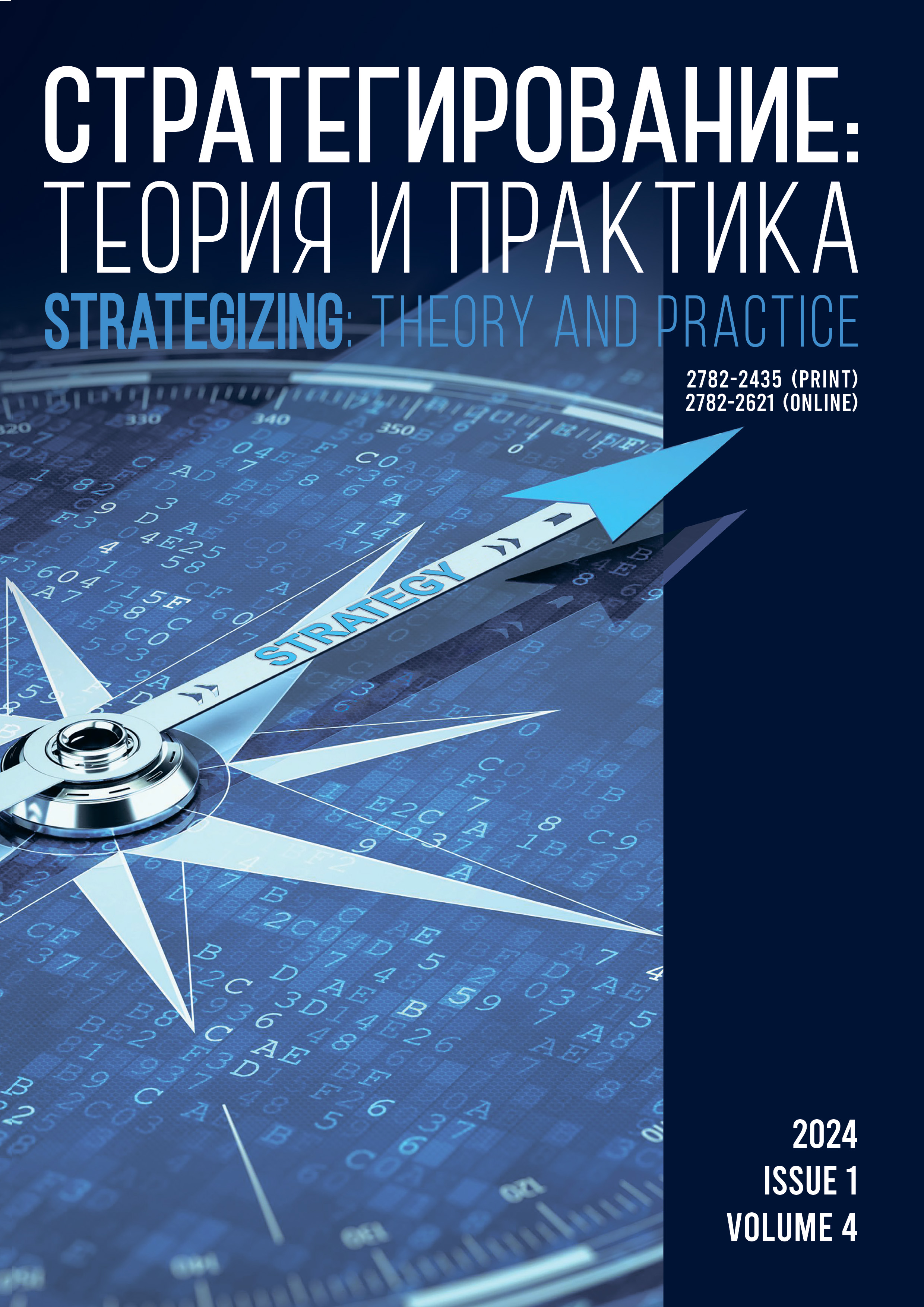Paris, France
With the start of Western sanctions against Russia at the end of February 2022, numerous catastrophic forecasts have been made about the Russian economy by both Western and some Russian economic institutions. However, neither for 2022 nor for 2023 were these predictions vindicated. Multiple errors can be traced to both technical difficulties associated with making serious forecasts in a rapidly changing situation, the nature of model used, and ideological or political bias. Even some Russian institutions demonstrated forecasting errors. The massive economic growth that started in Russia in the second quarter of 2023 obviously surprises economists. One wonders if such a situation will repeat it 2024.
economic growth, Russia, sanctions, forecasting, forecasting errors
1. Adolfson M, Lindé J, Villani M. Forecasting performance of an open economy DSGE model. Econometric Reviews. 2007;26(2-4):289-328. https://doi.org/10.1080/07474930701220543
2. Almon K. Iskusstvo ehkonomicheskogo modelirovaniya [The art of economic modeling]. Moscow: MAKS Press; 2012. 642 p. (In Russ.)
3. Bali M, Rapelanoro N. How to simulate international economic sanctions: A multipurpose index modelling illustrated with EU sanctions against Russia. International Economic. 2021;168:25-39. https://doi.org/10.1016/j.inteco.2021.06.004
4. Bali M. The impact of economic sanctions on Russia and its six greatest European trade partners: A country SVAR analysis. Finance and Business. 2018;14(2):45-67.
5. Bardazzi R, Ghezzi L. Large-scale multinational shocks and international trade: A non-zero-sum game. Economic Systems Research. 2021;34(2).
6. Benveniste G. On a code of ethics for policy experts. Journal of Policy Analysis and Management. 1984;3(4):561-572. https://doi.org/10.1002/pam.4050030406
7. Chevillon G. Econometric analysis and understanding of forecast errors. Revue de l'OFCE. 2005;95(4):327-356. (In French) https://doi.org/10.3917/reof.095.0327
8. Clarida R, Gali J, Gertler M. The science of monetary policy: A new Keynesian perspective. Journal of Economic Literature. 1999;37(4):1661-1707. https://doi.org/10.2139/ssrn.155910
9. Cling J-P, Fayolle J. INSEE's economic forecasts since 1969. Economics and Statistics. 1986;192:21-42. (In French) https://doi.org/10.3406/estat.1986.2502
10. Del Negro M, Lenza M, Primiceri GE, Tambalotti A. What’s up with the Phillips curve? SSRN Electronic Journal. 2020.
11. Dockès P. Capitalism and its rhythms, four centuries in perspective: Volume 2, Splendors and misery of growth. Paris: Classiques Garnier; 2021. 1390 p. (In French)
12. Doser A, Nunes R, Rao N, Sheremirov V. Inflation expectations and nonlinearities in the Phillips curve. Journal of Applied Econometrics. 2023;38(4):453-471. https://doi.org/10.1002/jae.2963
13. Estrella A, Fuhrer JC. Monetary policy shifts and the stability of monetary policy models. The Review of Economics and Statistics. 2003;85(1):94-104. https://doi.org/10.1162/003465303762687730
14. Fagiolo G, Roventini A. Macroeconomic policy in DSGE and agent-based models. Revue de l’OFCE. 2012;124(5):67-76. https://doi.org/10.2139/ssrn.2011717
15. Galbraith JK. The gift of sanctions: An analysis of assessments of the Russian economy 2022-2023. SSRN Electronic Journal. 2023. https://doi.org/10.36687/inetwp204
16. Galí J. Monetary policy, inflation, and the business cycle: An introduction to the new Keynesian framework. Princeton: Princeton University Press; 2008. 216 p.
17. Galí J, Gertler M. Macroeconomic modelling for monetary policy evaluation. Journal of Economic Perspectives. 2007;21(4):25-45.
18. Georgescu-Roegen N. Analytical economics: Issues and problems. Cambridge: Harvard University Press; 1966. 434 p.
19. Giumelli F. The redistributive impact of restrictive measures on EU members: Winners and losers from imposing sanctions on Russia. JCMS: Journal of Common Market Studies. 2017;55(5):1062-1080. https://doi.org/10.1111/jcms.12548
20. Hooper P, Mishkin FS, Sufi A. Prospects for inflation in a high-pressure economy: Is the Phillips curve dead or is it just hibernating? Research in Economics. 2020;74(1):26-62. https://doi.org/10.1016/j.rie.2019.11.004
21. Kholodilin KA, Netsunajev A. Crimea and Punishment: the impact of sanctions on Russian and European economies. SSRN Electronic Journal. 2016;(1569). https://doi.org/10.2139/ssrn.2768622
22. Klepach AN. Russian economy: The coronavirus’ shock and the recoveryprospects. Scientific Works of the Free Economic Society of Russia. 2020;222(2):72-87. (In Russ.) https://doi.org/10.38197/2072-2060-2020-222-2-72-87
23. Kornai J. Economics of shortage. Vol. 2. Amsterdam: North-Holland Publishing Company; 1980. 631 p.
24. Kuvalin DB. Russian economy under tough external sanctions: Problems, risks and opportunities. Economic and Social Changes: Facts, Trends, Forecast. 2022;15(6):79-93. (In Russ.) https://doi.org/10.15838/esc.2022.6.84.4
25. Lafféter Q, Pak M. Elasticities of tax revenues to the economic cycle: Study of three taxes over the period 1979-2013 in France. Paris: Insee; 2015. (In French)
26. Makriyannis C. The foundational economy-as-an-organism assumption of ecological economics: Is it scientifically useful? Ecological Economics. 2022;200. https://doi.org/10.1016/j.ecolecon.2022.107541
27. Olson RS. Economic coercion in world politics: With a focus on north-south relations. World Politics. 1979;31(4):471-494. https://doi.org/10.2307/2009906
28. Orphanides A, Williams JC. Robust monetary policy with imperfect knowledge. Journal of Monetary Economics. 2008. https://doi.org/10.2139/ssrn.1007805
29. Sapir J. Has western sanctions against Russia Failed? In: Bali M, editor. Sanctions and the Impact of the Russia-Ukraine conflict. New-York: Nova Science Publishers; 2024.
30. Sapir J. Is the economic war against Russia turning against its initiators? In: Kostner S, Luft S, editors. Ukrainian war. Why Europe needs a new détente policy. Frankfurt am Main: Westend-Verlag; 2023. 352 p. (In Germ.)
31. Sapir J. Russia's crash of august 1998: Diagnosis and prescriptions. Post-Soviet Affairs. 1999;15(1):1-36. https://doi.org/10.1080/1060586X.1999.10641460
32. Shirov AA, Brusentseva AR, Savchishina KE, Kaminova SV. Predictive and analytical capabilities of macroeconomic models in conditions of crisis economic development (using the example of the QUMMIR model). Economic and Social Changes: Facts, Trends, Forecast. 2022;15(6):35-51. https://doi.org/10.15838/esc.2022.6.84.2
33. Sonnefeld J, Tian S, Sokolowski F, Wyreblowski M, Kasprowicz M. Business retreats and sanctions are crippling the Russian Economy. SSRN Electronic Journal. 2022. https://doi.org/10.2139/ssrn.4167193
34. Storm S. Cordon of conformity: Why DSGE models are not the future of macroeconomics. International Journal of Political Economy. 2021;50(2):77-98. https://doi.org/10.1080/08911916.2021.1929582
35. Vahabi M. Introduction: A special issue in honoring Janos Kornaï. Public Choice. 2021;187:1-13. https://doi.org/10.1007/s11127-021-00887-w
36. Woodford M. Convergence in macroeconomics: Elements of the new synthesis. American Economic Journal: Macroeconomics. 2009;1(1):267-279. https://doi.org/10.1257/mac.1.1.267





